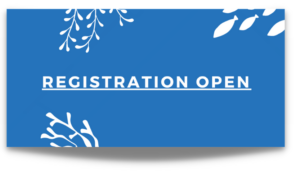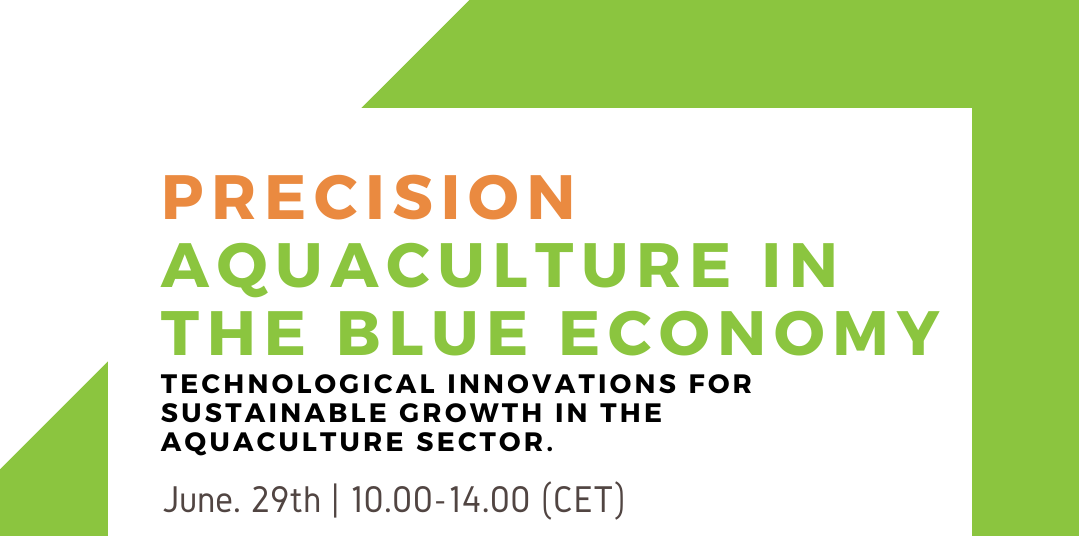
Technological Innovations for Sustainable Growth in the Aquaculture Sector.
On this day, we invite you to explore the latest innovations developed by GAIN, iFishIENCi, and IMPAQT H2020 projects to achieve more efficient and sustainable management of aquaculture farms. The program includes live demonstrations on intelligent tools, advanced modeling systems, and cloud-based integrations for real-time monitoring of the behaviour, health, feeding, safety, quality, and environment. Experts from the three consortia will present the outcomes in a session open to participation and questioning from attendees.
Furthermore, the point of view of both developers and end-users will intersect in order to assess the demands, gaps, and impacts of precision aquaculture on sustainability, cost-efficiency, and consumer confidence.
Programme
Chairperson: Dr Neil Ruane. Aquaculture Section Manager – Aquaculture R&D at the Marine Institute
10.00_ Welcome and project presentations.
Dr Neil Ruane. Aquaculture Section Manager – Aquaculture R&D at the MI
- IMPAQT – Frank Kane (Marine Institute – Project coordinator)
- GAIN – Roberto Pastres (Ca’ Foscari University of Venice – Project coordinator)
- iFishENCi – Dominique Durand (NORCE – WP Leader)
10.15_ Key-note speaker. Precision aquaculture in the Blue Economy
Dr Sara Barrento (Centre for Sustainable Aquatic Research, Swansea University)
10.30_BREAK
10.35_Bringing IT to Aquaculture. Technological innovations for sustainable growth in the aquaculture sector
10.35_Technology developments. Presentations of innovative technologies from the three projects.
10.35_IMPAQT
1 – Autonomous platforms for on-site chemical analysis. – Corrado Di Nalate (UNITOV)
2 – Data Acquisition System. – Sergio Martinez Navas (LEITAT)
3 – Satellite imagery & Crowdsourced data. – Miroslaw Darecki (IOPAN) Antoine Mangin (ARGANS)
4 – IMS and Data Analytics. – Ioannis Tzanetis (WINGS)
5 – IMTA Model. – Lauriane Vilmin (DELTARES)
6 – IT for the Seafood Quality Assessment. – George Nychas/Anastasia Lytou (AUA)
Q&A
11.10_GAIN
1 – Devices tested for measuring real-time animal variables – Edouard Royer (UNIVE)
2 – Decentralized data processing and information extraction – João Gomes Ferreira (Longline Environment)
3 – Data Hub: the IMS – Fearghal O’Donncha (IBM)
Q&A
11.30_iFishENCi
1 – iBOSS concept 6 Fish-Talk-To-Me – Franck Le Gall (Easy Global Market)
2 – “Smart” RAS detection of feeding behaviour, first results – Joseph A. De Prisco (AquaBioTech Group)
Q&A
11.50_BREAK
12.00_The user experience. How these technologies contribute to solving problems or optimize business areas in aquaculture?
12.05_IMPAQT
1 – IMTA model demonstration for planning. – Luca Van Duren (Deltares)
2 – Examples of decision support using the IMS from the pilot sites:
- Scottish Association for Marine Science – Kati Michalek
- Marine Institute – Joanne Casserly
- Camli Feed and Animal Husbandry – Seyma Tarkan
Q&A
12.30_GAIN
1 – Tools for precision shellfish farming – John Icely, SAGREMARISCO
2 – Can acoustic-based monitoring of biomass support decisions? – Giulia Micallef, GIFAS
Q&A
12.55_iFishENCi
1 – How iBOSS can support the development of aquaculture monitoring systems – Jesper Heldbo (OyxyGuard)
2 – Fish Talk to Me first testing experience – Nikos Papandroulakis (HCMR Greece)
3- Recent challenges in RAS design and operation, how SmartRAS concept can support this – Michele Gallo (AquaBioTech Group)
13.20_BREAK
13.30_Panel discussion. Opportunities, challenges and benefits for technology in aquaculture.
Chair: Dr Neil Ruane. Aquaculture Section Manager – Marine Institute, Ireland
- Seyma Tarkan (Fish Health Expert, QMS and R&D Team Leader at Camli Feed and Animal Husbandry)
- Frank Kane (Marine Institute. Project Coordinator of IMPAQT)
- Jon Grant. (NSERC-Cooke Industrial Research Chair and Professor of Oceanography. Dalhousie University Canada)
- Sara Barrento (Centre for Sustainable Aquatic Research, Swansea University)
- Tamás Bardócz (AquaBioTech Group, Project Coordinator of iFishIENCi)
- Joao Gomes Ferreira (Chief Scientific Officer of Longline Environment Ltd)
14.00_END
Featured Speakers
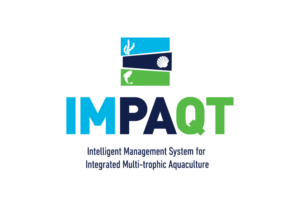
Neil Ruane
Session chair Neil Ruane has an MSc in Aquaculture from University College Cork, Ireland and a PhD from Wageningen University, The Netherlands, where he studied stress physiology and welfare in the common carp. Following post-doctoral research studies at the University of Algarve, Portugal on Senegal sole and further aquaculture related work on Arctic charr at University College Cork, he joined the Marine Institute as the finfish health team leader responsible for the National Reference Laboratory for Fish Diseases. He is currently the manager of the Aquaculture Section overseeing a range of research projects on integrated multi-trophic aquaculture, recirculating aquaculture systems and the potential of 5G technologies in order to promote the sustainable development of aquaculture within the EU. He has over 50 peer-reviewed scientific publications, is a former Chair of the ICES Working Group on Pathology and Diseases of Aquatic Organisms (WGPDMO) and is the current editor of the ICES Disease Leaflet Series.
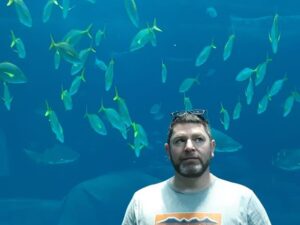
Frank Kane
Frank Kane is a marine biologist working with Aquaculture Section of the Marine Institute in Ireland, having worked with the Institute since 2002. He has previous experience with the salmon farming and shellfish sectors. His areas of research include aquaculture and aquaculture management, integrated multi-trophic aquaculture and the development of novel and lower trophic species in aquaculture, sea lice management, and environmental monitoring. On behalf of the Marine Institute, he is currently coordinating the Horizon2020 IMPAQT project, which is looking to validate the concept of IMTA and to develop an intelligent management system for the managing of IMTA farms. This is a 3-year project which started in 2018.
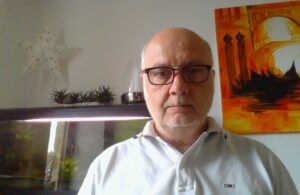
Philippe Bryère
Philippe Bryère obtained a PhD in Biology in 1985 at the University of Paris IV and has Computer Sciences background. He has been working on the field of marine sciences and satellite observations since 1991, e.g. wind waves and sea ice detection with ERS and NOAA satellites in collaboration with the spatial oceanographic laboratory of French marine institute (IFREMER); French operational coastal oceanography project (PREVIMER) and water quality survey (WFD and MFSD: European directive for coastal marine zones and French marine zones). He works mainly on Ocean Colour (OC) thematic closely with IFREMER and French naval hydrographical service (SHOM) to calibrate/validate OC algorithms and generate end-user products. Besides his role as the project manager from ARGANS company within IMPAQT, he was involved in several national and ESA/EU projects (GIGASSAT, MyOcean, MCGS, SAFI, SMART, HiSea…) for the generation of end-user products for aquaculture, such as water quality and marine environmental assessment.
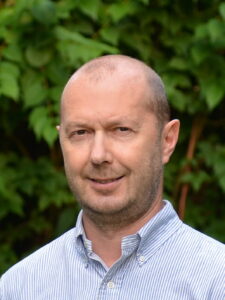
Miroslaw Darecki
Miroslaw Darecki is a Professor at the Institute of Oceanology Polish Academy of Sciences in Sopot, Poland. He is head of the Marine Physics Department and leading the Remote Sensing Laboratory at the Institute. His research interests cover a wide range of topics especially in the areas of ocean optics, optical remote sensing of the ocean, and applications of optical methods in oceanography. He has gained experience in developing ocean colour satellite algorithms, image processing, and interpretation of satellite data. In the IMPAQT project, he is involved in the promotion and development of methods allowing to use of satellite remote sensing data in the intelligent management system for aquaculture sites.
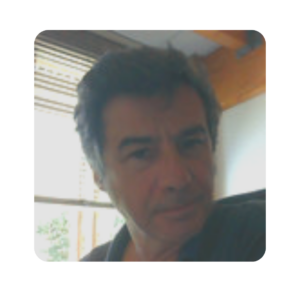
Antoine Mangin
Dr. Antoine Mangin is the scientific director of ARGANS-F company (France). He has an education in fluid mechanics and Oceanography. His main topics of interest are downstream services using both satellite and modeling for fish farming, aquaculture, and, more generally, the monitoring of the biodiversity at sea. In addition to classical means of observations, Antoine and colleagues have developed, more than 10 years ago, a jellyfish observatory based on participative science (crowdsourcing) where the general public reports observations of the absence/presence of jellyfish. The large success of this observatory (more than 45,000 observations collected) complements the study of environmental parameters that promote the proliferation of jellyfish. This participative system (called SIMPLEX) has been implemented in H2020 IMPAQT project for private usage, to easily report, from farms, on fish behaviors and farm structure anomalies, or issues that are easy to report by humans but difficult to measure by sensors.
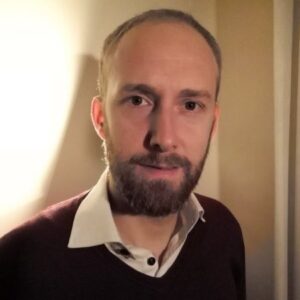
Edouard Royer
Edouard Royer graduated as an electrical engineer at INSA Lyon, France in 2005. He worked for many years in the aerospace industry as a software developer, and then for the French space agency (CNES) as a technical conformity engineer, building risk assessment for European launch from French Guiana. Edouard started to work as a data scientist in 2016 when he left France for Italy where he supported the Bluefarm Srl team in its effort to bring innovation in the aquaculture field. Since then he works with EO (Earth Observation) and in-situ data, environmental models, computer science, and data processing algorithms in order to create innovative services for fish and shellfish farmers. He arrived within the GAIN project as a researcher of Ca’Foscari university at the beginning of 2019. He is applying the precision fish farming approach to a trout farm pilot site situated in Preore, Italy. He is the leader of the GAIN professional development work package.
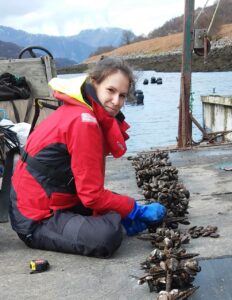
Kati Michalek
Dr Kati Michalek is a marine biologist with expertise in shellfish and seaweed cultivation, working at the Scottish Association for Marine Science (SAMS). She was awarded a Marie-Curie PhD scholarship (EU FP7 project CACHE-ITN 2013-2017) investigating the relationships between cultivation environment, stock genetics, and performance at longline mussel farms in Scotland. Her applied approach and focus on industrial application potentials earned her local and regional recognition in the scientific and aquaculture community. Since 2018, Kati has taken on a post-doctoral research assistant role at SAMS working in two EU H2020 projects IMPAQT (2018-2021) and ASTRAL (2020-2024) trialing the co-cultivation of extractive species (shellfish and seaweeds). Her focus lies in optimising farm design and cultivation practices as well as improving the monitoring management of aquaculture production sites.
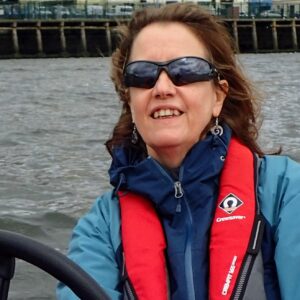
Luca A. van Duren
Dr. Luca A. van Duren is a senior scientist at Deltares, a marine ecologist with a background in the interaction between biota, fluid dynamics, and sediment. She received her PhD in Marine Biology at the University of Groningen and subsequently worked at the Netherlands Institute of Ecology in Yerseke (the Netherlands) on projects relating to benthic boundary layer hydrodynamics, ecosystem functioning in systems with shellfish cultures and ecosystem engineering by aquatic species. She has been working at Deltares on a large variety of multidisciplinary integrative projects in marine and coastal waters, ranging from ecosystem restoration and environmental management to modelling tools for aquaculture. The focus of her work is on ecosystem functioning in relation to physical processes (hydrodynamics and sediment movement) and human use. She currently participates in EU projects such as IMPAQT, focusing on the implementation of IMTA (Integrated Multi-Trophic Aquaculture) and FutureMARES, which is examining the relations between climate change, marine biodiversity and ecosystem services. She also leads projects relating to the assessment of system effects of large-scale implementation of offshore wind in the southern North Sea and is also part of the Deltares team for the H2020 project UNITED (multi-Use platforms and co-location pilots boosting cost-effective, and Eco-friendly and sustainable production in marine environments).
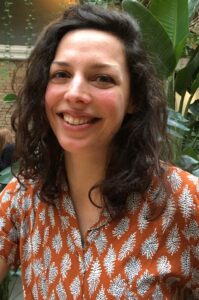
Lauriane Vilmin
Lauriane Vilmin is a researcher/advisor at Deltares, where she is specialized in coastal and marine water quality and ecology modeling. She obtained her Ph.D. at MINES ParisTech on the hydro-biogeochemical modeling of the Seine River, from the Paris urban area to the estuary. Her research aims at better grasping the impacts of human emissions and infrastructure on nutrient and carbon transfers in aquatic environments, and on subsequent ecosystem functioning. In the last years, within Deltares’s Marine and Coastal Systems unit, she has been applying large-scale, state-of-the-art, 3D models, integrating hydrodynamics and water quality, to investigate ecological effects of current and future marine uses (e.g. effect of offshore wind and aquaculture). Within the Horizon 2020 IMPAQT project, she worked on the development of IMTA models to explore the benefits and environmental effects of different IMTA layouts in the North Sea (combined seaweed and mussel production) and in the Northern Aegean Sea (seaweed and mussel cultivation in the vicinity of fish cages).
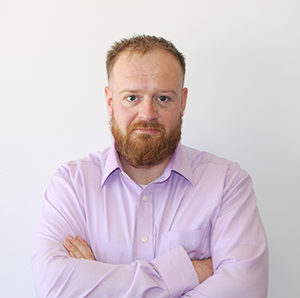
Steven Prescott
Dr. Steven G. Prescott is a Senior Aquaculture Consultant & Aquaculture Life Cycle Assessment Consultant at AquaBioTech Group, an aquaculture scientist specialising in the interactions between aquaculture and the natural environmental, and how they relate to issues of economic and societal development. In particular, he is highly experienced in the Life Cycle Assessment of aquaculture value chains, including the production of aquaculture feeds and the agricultural production of their ingredients, hatchery and grow-out production for a variety of species, and product-processing. He obtained a PhD from the University of Stirling’s Institute of Aquaculture, for which he explored the sustainability of the Chilean Atlantic Salmon production chain, Chilean Blue Mussel value chain, and Integrated Multi-Trophic Aquaculture systems. He also has experience evaluating the potential for energy production from marine resources. He is the demonstration work leader in the iFishIENCi H2020 project.
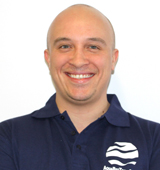
Michele Gallo
Michele Gallo is an expert in Bio-design, Bioengineering, and system modeling at SME AquaBioTech Group. A marine biologist (M.Sc. in Marine Science cum laude) with more than 3 years of experience as a researcher between Italy, South Africa, and Australia, from 2015 he moved to Aquaculture, first as a student of Wageningen University (M.Sc. in Aquaculture), focusing on modeling RAS systems, then working at Nofima in Norway on Atlantic salmon cultured in RAS with some of the biggest salmon experts on important industry-oriented projects. At AquaBioTech Group, he leads the experimental RAS projects and will provide insight into the challenges of RAS design and operation including the importance of accurate feeding and improved data analysis.
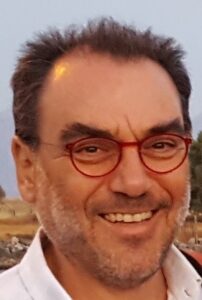
Nikos Papandroulakis
Nikos Papandroulakis Holds a PhD in Marine Biology and is currently Research Director at the Institute of Marine Biology Biotechnology and Aquaculture of HCMR. He is involved in the improvement of methodologies and technologies for the rearing of Mediterranean fish species, and the study of their requirements, and the development of mathematical models of food consumption and growth in order to develop automated management and feeding systems. The study of fish behavior during different rearing conditions is aiming to understand the physiological mechanisms involved and to develop methods – indicators for monitoring and management of farmed populations during the production process. Since 2000 work with fast growing species like the greater amberjack (Seriola dumerili) and the meagre (Argyrosomus regius) target species for the Mediterranean. Development of offshore aquaculture (also on multipurpose platforms), tools for new, monitoring, operation and decision making schemes, towards precision farming. He has published 4 chapters in books and more than 100 original papers in scientific journals and papers in Journals of International Scientific Societies and has been coordinator or partner in 34 National and EU projects.
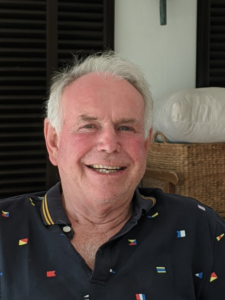
John Icely
Dr John Icely is a marine scientist who has been working at the interface between industry, research, and education in Southern Portugal for the last 35 years. He has primarily been involved in the aquaculture of shrimp, scallops, clams, oysters, and mussels with particular emphasis on offshore longline systems. As the owner of the company Sagremarisco Lda and a Senior Researcher with CIMA- Center for Marine and Environmental Research, University of Algarve, Faro, Portugal, he has been involved in 14 EU research projects and 4 validation projects for the European Space Agency. John has contributed to 90 ISI peer-reviewed papers and articles in proceedings, and over 200 other forms of scientific communication (conferences, workshops, technical reports, project deliverables). John has co-supervised 8 first-cycle, 23 master, and 8 doctoral students and organised 30 field trips along the Algarve coast for a number of higher education institutions.
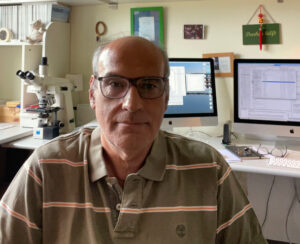
Corrado Di Natale
Corrado Di Natale is a full professor of Electronics at the Department of Electronic Engineering of the University of Rome Tor Vergata. He teaches courses on “electronic devices and sensors” and “chemical sensors and biosensors” and he is the director of the PhD program in Electronics. His research activity has been concerned with the development and application of chemical and bio-sensors, artificial sensorial systems (olfaction and taste), the optical and electronic properties of organic and molecular material, and the application of machine learning to sensors data. He published more than 500 papers (Scopus h-index = 62). He has been President of the International Society on Olfaction and Chemical Sensors and currently serves as president of the Italian Association on Sensors and Microsystems.
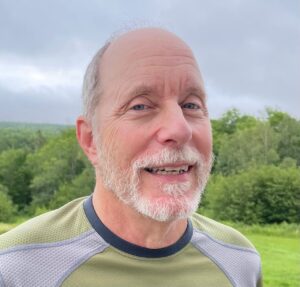
Jon Grant
Jon Grant is the NSERC-Cooke Industrial Research Chair in Sustainable Aquaculture, a multi-year partnership with Cooke Aquaculture. He is a Professor of Oceanography at Dalhousie University. Trained as a benthic ecologist, he has a BSc from Duke University and PhD from the University of South Carolina. Jon has worked in aquaculture-environment interactions for 30 years. Working with both the shellfish and finfish farming industry, Jon has pioneered concepts and tools for assessing carrying capacity in field culture. Collaborating with companies such as Cooke Aquaculture, InnovaSea and IBM, Jon has been at the forefront of precision aquaculture including research in Scotland and Canada inside of the H2020 GAIN program, and through research at the Ocean Frontier Institute in Halifax. This involves oceanographic sensors as well as fish tagging in the development of real-time data, on-farm conditions, and fish welfare.
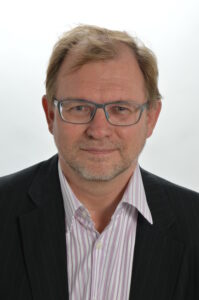
Jesper Heldbo
Jesper Heldbo holds an industrial Ph.D. from the Danish Academy for the Technical Science and the Danish Technical University. Heldbo graduated from the University of Copenhagen with an M.Sc. in Aquaculture and Environmental Biology. During the years Heldbo has been initiating and managing several national, Nordic, and European Research and Development programs. Recently Heldbo made a review of the Best Available Technologies (BAT) for Aquaculture in the Nordic Area, published by the Nordic Council of Ministers, 406 pp. Since 2005 Heldbo has held the position of General Secretary for the Danish Business Association AquaCircle and from 2018 and onwards he has been employed part-time at OxyGuard International.
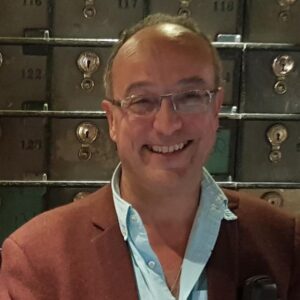
João G. Ferreira
João Ferreira is the Chief Scientific Officer of Longline Environment Ltd., a UK/Ireland technology company specializing in sustainable aquaculture. Joao holds a Professorship in Environmental Engineering at the Faculty of Sciences and Technology of the New University of Lisbon, Portugal, and was a Distinguished Visiting International Scholar in 2015 at the University of Rhode Island. He has coordinated the modeling component of fifteen European and six other international research projects over the last twenty years, in areas such as aquaculture, eutrophication, and coastal zone management. He has published sixty-nine papers in peer-reviewed journals, several book chapters, coordinated the publication of the COEXIST/FORWARD (goodclam.org), SPEAR (biaoqiang.org), and SMILE (ecowin.org/smile) books, and recently co-edited the book ‘Goods and Services of Marine Bivalves. He is the author of the EcoWin system-scale ecological modeling software, and co-author of the FARM carrying capacity model, used for local-scale aquaculture modeling. Both models have been widely used in North America, Europe, Asia, Africa, and South America. He is a co-author of the ABC screening model for simulating disease risk in aquaculture and co-authored the ASSETS eutrophication assessment model in collaboration with NOAA. He was a member of the EU Water Framework Directive Common Implementation Strategy task group for estuarine and coastal systems and led the eutrophication descriptor guidance group for the EU Marine Strategy Framework Directive.
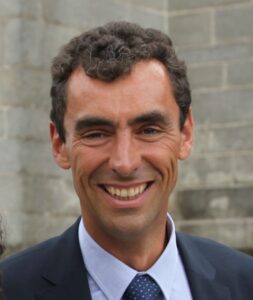
Franck Le Gall
Dr Franck Le Gall, is CEO at Easy Global Market, an innovative SME focused on integration and validation of emerging technologies. He is driving company development to deploy IoT and data technologies over vertical markets (water, agriculture, smart territories, environment, etc.). He involves himself in standardisation areas including ETSI where he is co-chairman of the ETSI ISG-CIM working group on NGSI-LD. He is also chairing the interfaces working group of the FIWARE Technical Steering Committee (TSC) as well as the joint ETSI-FIWARE Foundation working group on Digital Twins. Finally, he co-chairs the SmartWater working group of the ICT4Water European research cluster. He involves himself in, several aquaculture-related projects including IFISHIENCI and IMPAQT.
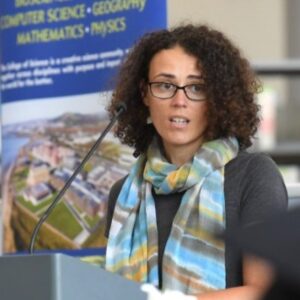
Sara Barrento
Dr Sara Barrento is a marine biologist, project manager and educator. Sara is managing and delivering INTERREG projects (Ireland-Wales and Atlantic Area) and a Seafood Innovation Fund project at the Centre for Sustainable Aquatic Research, Swansea University, UK.. Sara also coordinates the practical component of the third year teaching module on fisheries and aquaculture. In the past 12 years, she worked in sustainable fisheries and aquaculture of shellfish and seaweeds; supported the delivery and management of six large (> 2 million Euros) European Research projects (FP6, FP7, Horizon2020, ERDF) and RC-UK projects; lectured in the UK, Thailand, and Gibraltar; created science communication content in a variety of formats – webinars, newsletters, promotional videos, digital storytelling, blogging, PR management, and stakeholder engagement. Sara provides expert consultancy in knowledge exchange in aquaculture (IMTA and restorative aquaculture), evaluation of international research projects, capacity building of educators, speaker coaching and online learning.
